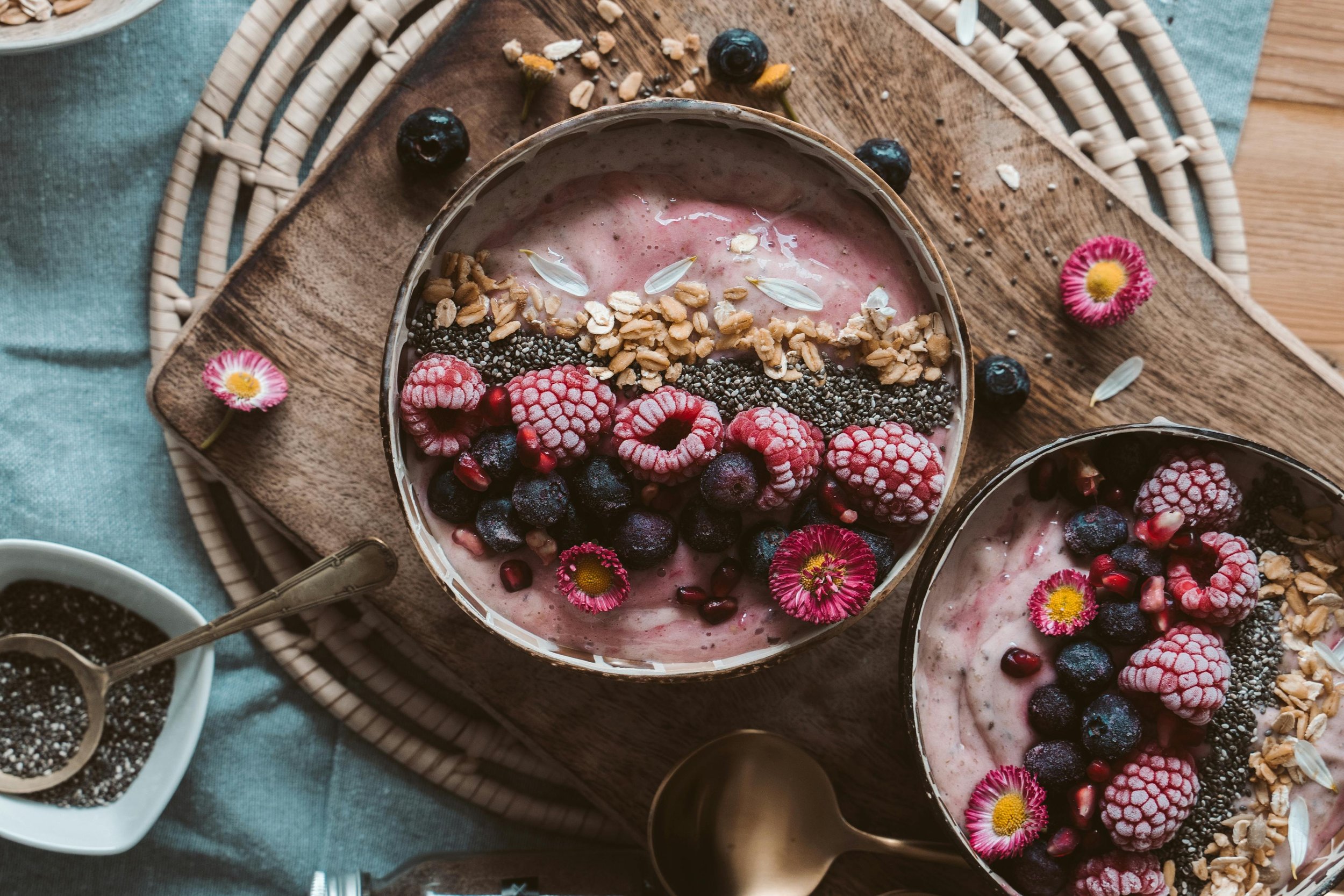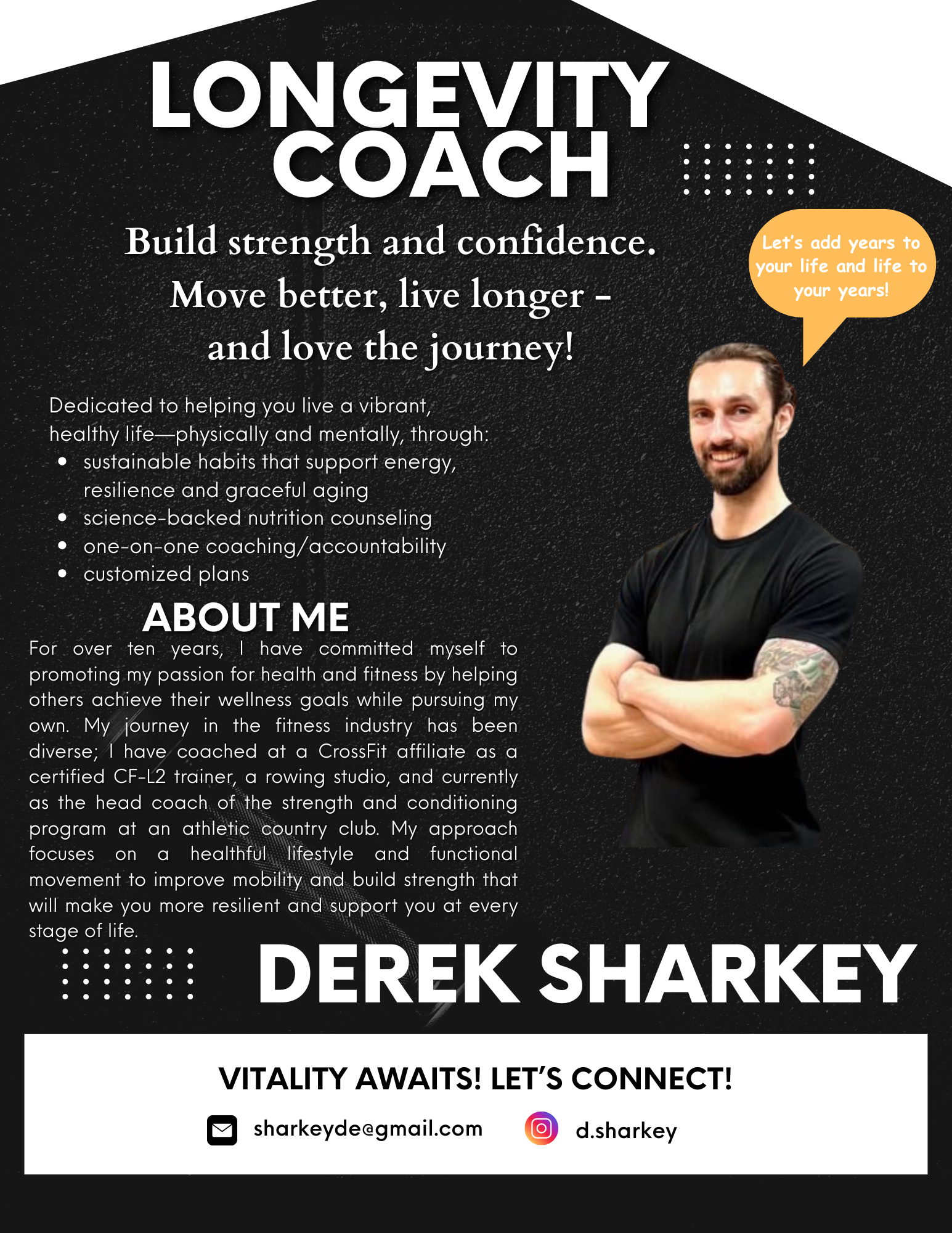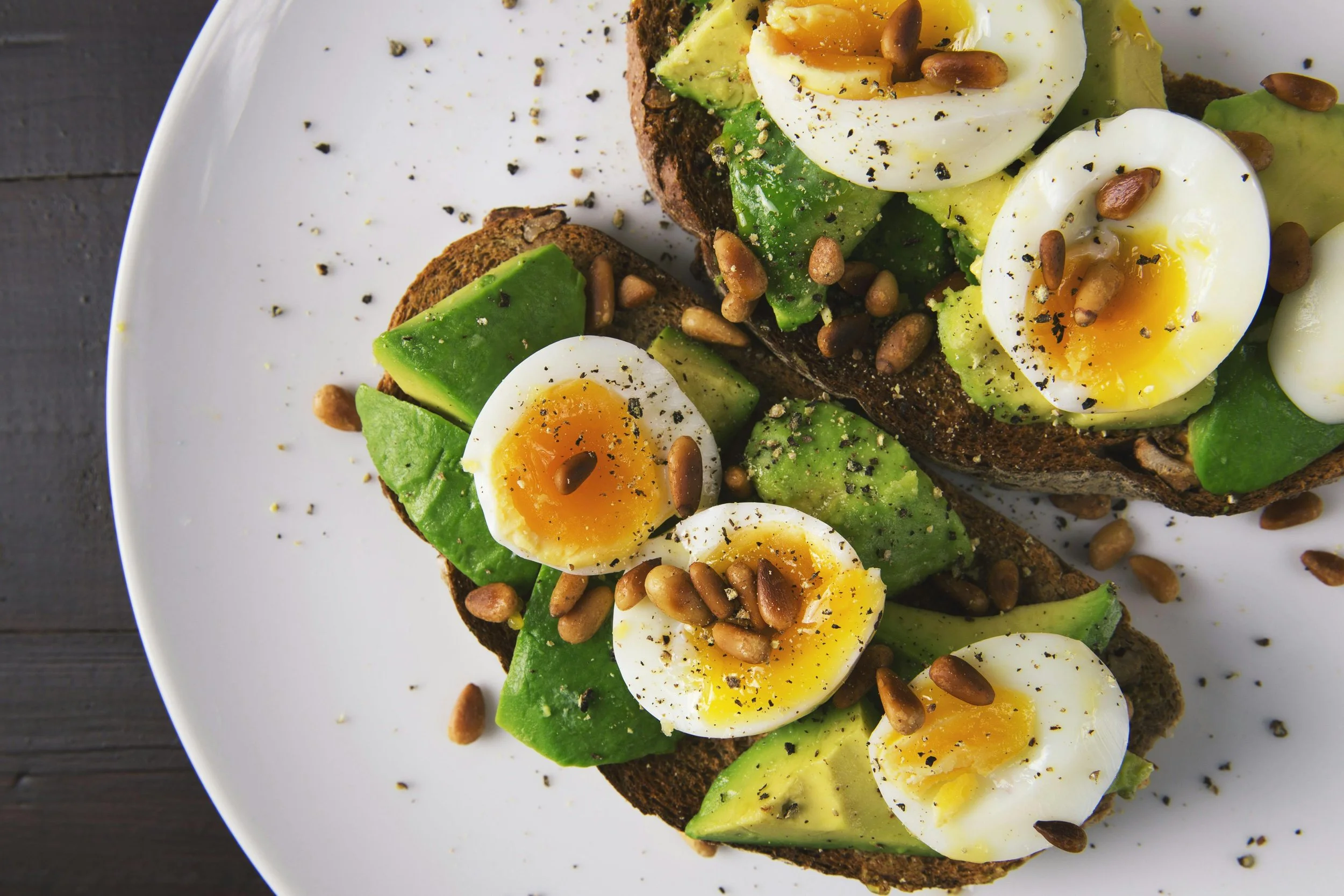Is Your Wellness Without the White Noise? 🌪️
Three truth bombs from my trainer to help you ditch the fads and get real about your health.
If you’ve ever tried to “get healthy” in the modern age, you know the drill:
One week it’s “drink celery juice.” The next it’s “cut out carbs.” Suddenly your feed is full of contradictory tips, 30-day challenges, and so-called “must-have” supplements.
It’s exhausting.
That’s why for National Wellness Month, I wanted to strip away the noise and go back to the basics—truths you can actually build a lifestyle around. And for that, I knew exactly who to call: my trainer, Derek.
Derek is a health and wellness professional with nearly 15 years of experience coaching functional fitness and nutritional guidance.
He’s worked with hundreds of clients, helping them get unstuck and create results that last without falling for fads. He’s also a hybrid athlete with an impressive résumé of races, competitions, and endurance challenges.
But most importantly? Derek knows how to make wellness simple.
This isn’t medical advice; just real talk from a seasoned pro.
Q: What’s one nutritional tip you wish all your clients knew and practiced? Why is it so important?
“Avoid all processed foods like the plague, because that is exactly what they are. The slowest, most sinister plague—created to trick and addict you at a cellular and subconscious level.
Instead, prioritize real, whole, single-ingredient foods at every meal. Especially animal-based protein like beef and eggs. These give you the essential amino acids you need to build and maintain muscle—the currency of longevity.
Plant-based protein is fine, but it doesn’t contain the full amino acid profile we need.
The problem with processed foods is that they’re usually made from the lowest quality ingredients, loaded with artificial flavors, colors, sweeteners, and preservatives. They leave you void of nutrition while wreaking havoc on your gut microbiome, metabolism, and brain health. Over time, this leads to weight gain, inflammation, and chronic disease.
This can’t be overstated—real food is the foundation of health.”
Why this matters:
When we strip nutrition back to basics, it becomes less about “good” vs. “bad” foods and more about nourishment. Real food fuels every system in your body. And while that sounds obvious, it’s a discipline that’s easy to lose in a world of convenience snacks and ultra-processed “health” products.
Q: Coconut oil or olive oil? Which is better and when?
“It depends on the situation.
Extra virgin cold-pressed olive oil is a better option for daily cooking and cold uses like salad dressings. It’s rich in monounsaturated fats, which can raise HDL (good) cholesterol and lower LDL (bad) cholesterol. Plus, it contains antioxidants and polyphenols that benefit brain health and reduce inflammation.
Coconut oil, on the other hand, is better applied than consumed. It’s very high in saturated fat and omega-6—nutrients we often already get too much of in our diets due to vegetable oils. While coconut oil contains MCTs (medium-chain triglycerides) that are good for energy and fat burning, a pure MCT oil is a better way to get those benefits.
I recommend using coconut oil as a moisturizer for extremely dry areas (but not the face), soothing after-shave or sun exposure, and for oil pulling because of its antimicrobial properties.”
Why this matters:
In wellness culture, foods often get labeled as “superfoods” without context. Both olive and coconut oil can be healthy—but the way we use them matters. Knowing the difference helps you make smarter, more intentional choices.
Q: This summer has been HOT. What does it mean to be truly hydrated? Should we be drinking gallons of water a day?
“Contrary to popular belief, hydration isn’t just about water consumption—it’s about water retention.
Sweat from heat and exercise is the obvious cause of dehydration, but caffeine, alcohol, and even stress are big drivers too.
The old ‘8 glasses a day’ rule is outdated. In fact, drinking too much water can leach important minerals from your body, aside from making you run to the bathroom all day. We also get water from vegetables, fruits, and other foods.
The key is to include high-quality salt like Redmond’s Real Salt, Celtic sea salt, or pink Himalayan salt in your diet. These salts are loaded with minerals that help your body retain water—not in a bloated way, but in a way that supports balance and function. Think of it as motor oil for your body, keeping all systems running smoothly.
My tip: Add salt and lemon or lime to 16 oz of filtered water in the morning and sip it over two hours before you have caffeine. A hydration mix like Redmond Re-Lyte is another great option. Avoid low-quality iodized table salt or hydration drinks loaded with sugar.”
Why this matters:
Hydration is an inside job. Without the right minerals, all the water in the world won’t help your body stay balanced. Small tweaks like adding quality salt can change your energy, focus, and recovery in a big way.
My Takeaway After Talking with Derek
The world of wellness can make you feel like you’re doing everything wrong if you don’t follow the latest headline or TikTok hack. But conversations like this remind me of something important:
Your body doesn’t need a trend—it needs care, consistency, and real nourishment.
So maybe “wellness” this month isn’t about adding more to your to-do list. Maybe it’s about subtraction:
Less processed food
Less mindless oil use
Less water without minerals
…and more of the basics that make you feel human again.
If you still yearn for a less trend-driven, non-fear-based, just clear, sustainable steps that put you back in control, hit reply or DM me anytime, I’m always in your corner.
Here’s to quieting the noise and finding your own wellness rhythm. 🌿





